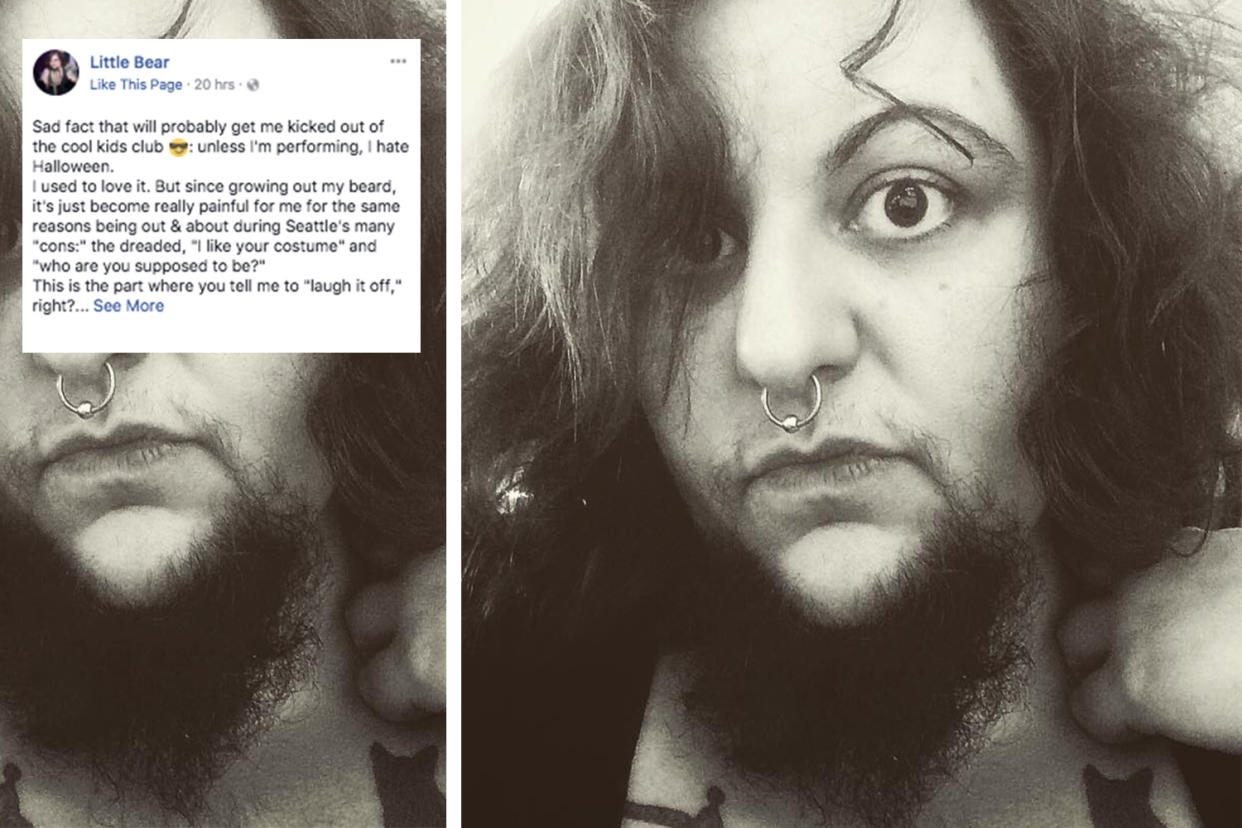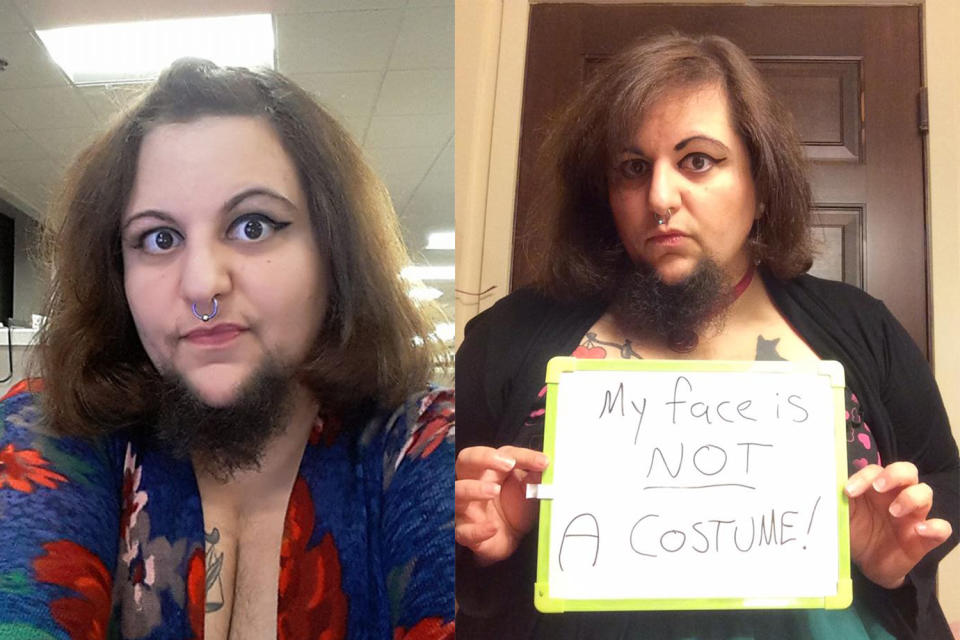After this woman stopped shaving her facial hair, she found having a beard was freeing — and lucrative

As much fun as Halloween can be for many of us, there are some who are breathing much easier now that it’s over. Singer and sideshow performer Little Bear Schwarz recently shared on Facebook that the holiday is painful for her. It’s the time of year when she is most reminded what others think of the beard on her face.
“When people ask me about my ‘costume,’ it reminds me how far I have to go in my mission to make Hairy Women valid & visible,” she wrote. “It reminds me that above all my merits — talent, beauty, sensitivity — I am seen as above all else: strange.”

A condition called polycystic ovary syndrome (PCOS) has caused Schwarz to grow hair on her face and chest since she was 15, though she didn’t receive a correct diagnosis until much later. She used to have to shave every day to remove the traces of her hair. But when she was 31, she had the opportunity to move from Florida to Seattle to live with her then boyfriend and work from home. That’s when she decided to see what would happen if she stopped shaving.
“I realized it was kind of now or never, so I grew it out and within a few weeks found a flyer for a beard competition, which I entered and won,” Schwarz tells Yahoo Lifestyle. Within a month, she had joined the Wreckless Freeks sideshow as a performer. “I learned pretty early in that [having a beard] was not just possible but also lucrative.”
Though she still has to support herself with a day job for an insurance company, Schwarz now identifies with her artistic career, which involves opera singing and burlesque, not just standing around and showing off her beard. But there is a big difference between performing as “Little Bear the Bearded Lady” and subjecting herself to nasty comments on the street.
“The stage is funny in that it’s very exposing, but there’s also a shielding element to it,” she shares with Yahoo Lifestyle. “They’re watching me to be entertained, so the power is sort of in my court when I’m onstage. The funny thing is, is that when I get onstage, my beard is probably the first thing that they notice … but when I get offstage, my beard is usually the last thing they think about. That’s what makes it not exploitive.”
Out in public, however, people don’t have that context.
“I’m just a weird-looking person on the street,” she says. When people aren’t making rude comments, they’re often staring silently. That’s why she started wearing a button that says, “I’m open to questions about my appearance.” She’d rather answer people’s questions than endure their silent assumptions.

Unfortunately, on Halloween, she gets more comments along the lines of “Oh, God, I was scared until I realized it was a costume” from Uber drivers and people on the bus. “I said, ‘No, it’s my face,’ a lot more this week than I would have liked to.”
This sounds like an exhausting existence, but Schwarz says that not only is it still better than shaving all the time, but she also feels like she’s a part of something bigger than herself.
“Sometimes it does seem futile, but then I’ll get a message from a girl who’s 15, 20 and who has the same condition that I do, PCOS, who will say, ‘I felt really ugly and insecure, and then I found your page and I feel better.’ That one email will pretty much negate an entire bus ride of rude comments.”
When Schwarz writes about what it’s like to receive those comments, she often hears the response that she should just go back to shaving if she doesn’t like the attention. Schwarz equates that with blaming victims for sexual assault.
“I can learn to adjust and maybe desensitize myself to the public’s comments, but nobody who looks ‘strange’ should ever have to learn to be OK [with that],” she says. “When society does something horrible, we have the right to complain. We have the right to demand justice.”
Schwarz gets flak from some in the sideshow community too — those whose physical anomalies are much more difficult to hide than Schwarz’s, who can make hers disappear with a razor. She views it as all part of the same fight to make people accept others with differences.
“What I do and the steps that I take — I can’t really expect to see the difference it makes in my lifetime,” she says. “I can only hope that 50, 100, 200 years from now, a woman with a beard can walk down the street and not have to worry about what people say.”
Read more from Yahoo Lifestyle:
Follow us on Instagram, Facebook, and Twitter for nonstop inspiration delivered fresh to your feed, every day.


